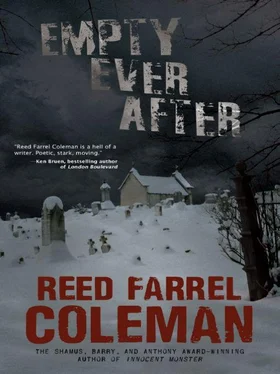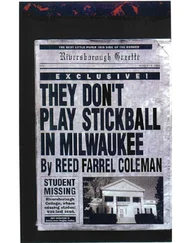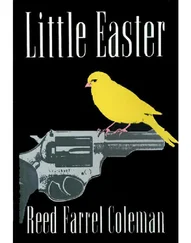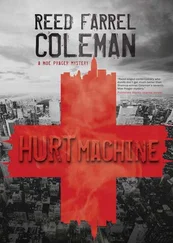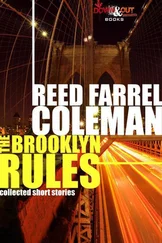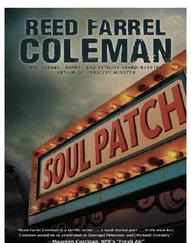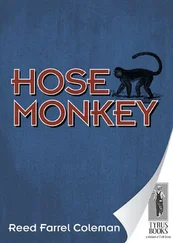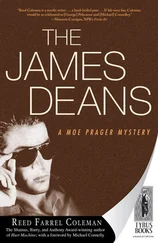Reed Coleman - Empty ever after
Здесь есть возможность читать онлайн «Reed Coleman - Empty ever after» весь текст электронной книги совершенно бесплатно (целиком полную версию без сокращений). В некоторых случаях можно слушать аудио, скачать через торрент в формате fb2 и присутствует краткое содержание. Жанр: Криминальный детектив, на английском языке. Описание произведения, (предисловие) а так же отзывы посетителей доступны на портале библиотеки ЛибКат.
- Название:Empty ever after
- Автор:
- Жанр:
- Год:неизвестен
- ISBN:нет данных
- Рейтинг книги:5 / 5. Голосов: 1
-
Избранное:Добавить в избранное
- Отзывы:
-
Ваша оценка:
- 100
- 1
- 2
- 3
- 4
- 5
Empty ever after: краткое содержание, описание и аннотация
Предлагаем к чтению аннотацию, описание, краткое содержание или предисловие (зависит от того, что написал сам автор книги «Empty ever after»). Если вы не нашли необходимую информацию о книге — напишите в комментариях, мы постараемся отыскать её.
Empty ever after — читать онлайн бесплатно полную книгу (весь текст) целиком
Ниже представлен текст книги, разбитый по страницам. Система сохранения места последней прочитанной страницы, позволяет с удобством читать онлайн бесплатно книгу «Empty ever after», без необходимости каждый раз заново искать на чём Вы остановились. Поставьте закладку, и сможете в любой момент перейти на страницу, на которой закончили чтение.
Интервал:
Закладка:
As I stood on the information line and listened to the beige woman at the desk endlessly repeat How can I help you? I had to snicker. There were several layers of irony in Judas Wannsee’s transformation.
“Yes,” I said, “I’d like to speak to your supervisor, please.”
“What’s this in reference to?”
“Just tell him it’s about Bungalow number eight. He’ll understand.”
She hesitated and shook her head. Apparently, this situation had not been covered in Information Desk 101, so she handled it as she would if I’d come in to surrender some old license plates. She hit a button that generated a white numbered chit-A 322-and handed it to me.
“Take a seat. Next! ”
I did as she asked, taking a seat on a long pew. The pews faced numbered stations where bored-looking clerks did what clerks do. The pews also faced big electronic boards that posted chit numbers and stations in red lights:
F121 12
D453 10
A320 08
And whenever new numbers were posted, a bell would ring. The place seemed to have been designed by a bingo-playing priest heavily influenced by Pavlov. A322 12 flashed up on the screen quickly enough. The woman at window 12 directed me to walk over to a door. When I reached it, she buzzed me in.
“Down the hall,” she yelled to me as I closed the door behind me.
The man I had known as Judas Wannsee sat behind a metal desk, shuffling and scribbling on papers. The walls were white and blank except for the mandatory notices about sexual harassment, emergency procedures, and handwashing when leaving the rest rooms. They were devoid of pictures, posters, of anything that might have given a visitor insight into the man who occupied the office. He was twenty years older and it showed. He had thinned, as had his hair. He was stooped somewhat and gravity had taken its toll on his face, but the eyes still burned bright.
“Mr. Prager,” he said without looking up. “Bungalow number eight, indeed.”
I knew he would remember. Bungalow 8 was where Karen Rosen had spent her last days, where we spoke that final time.
“I figured it was better than asking for Judas Wannsee or throwing a felt star on the counter.”
“I suppose,” he said, rubbing his chin. “Or you might simply have asked for Howard Bland. But no, as I recall, the simple way was not your way. You have a weakness for the dramatic turn. Please sit.”
I sat.
“How did you find me?” he asked.
“I’m a detective.”
“Lost is what you are, Mr. Prager. You always have been and I sense you will always be so.”
That stung some. I didn’t try to hide it. “And you’re a hypocrite. What happened to all your speeches about not fitting in and showing yourself to the world as a Jew as a black man shows the world he is black? Look where you are now. You’re a glorified clerk: faceless, pointless, invisible. Polonius too was full of high sentence, but at least he moved the plot along.”
“The lost detective… who quotes from Prufrock, no less.”
The less I liked his attitude, the more I liked him for what had happened to Katy.
“I was paraphrasing, not quoting.”
“Polonius? I think not. My speeches are like the soft tissue of dinosaurs, lost to history.”
“Talk about a flare for the dramatic. Besides, that’s no answer.”
“And why should I be obliged to answer your questions at all?”
I suppose I could have grabbed him by the collar and twisted. It might have given me some short-term satisfaction, but would’ve ultimately proven counterproductive.
“You’re not obliged, but I might tell you how I tracked you down if you cooperate.”
“You know, Mr. Prager, upon brief reflection, I find I’m not really so interested in how you found me. In fact, maybe how is beside the point. Let me ask, why?”
Again, I had a choice. I chose the non-violent option and explained. He never took his eyes off me as I spoke. He still had that ability to make you feel as if he could see right into you, into the darkest places, places where you stored your most shameful thoughts and unshared secrets. I was convinced he could detect the slightest hint of pose or artifice. When I finished, he considered what I had said before speaking. He still had it, the charisma. A lot of people want it. Some think they have it and don’t. He had it in abundance.
“I can understand why you might have suspected me,” he said, “but I’m sorry to disappoint you. I have nothing to do with the crimes perpetrated against your family.”
I didn’t want to believe him, yet I did, instantly. “Fair enough.”
“I was quite piqued at you there for a time, I must confess. Your stumbling onto Karen did disrupt things for me. The group went on, even grew larger. I still believed in what I preached, but your presence caused me to have to look beyond my own belief system and motivations and to examine more carefully those who would follow my lead or, like Karen, seek refuge with us. You’d planted the seed. You see, I began the group because I believed in a set of values, not because I had a need to lead or a lust for power. Leadership and power are onerous, heavy yokes, not pleasures. Yet they were burdens I was glad to take on if it helped the misguided Jews of this great country.
“ What I discovered, Mr. Prager, was that you could worship watermelon pits or sacks of gray pebbles or anything else for that matter and people would follow. Sadly, the world is populated by a lot of lonely, hungry, and lost souls. They all want to belong, to be loved, to be fed, to be anchored. Beliefs, unfortunately, are cold cold things. They give no comfort, no acceptance, no sustenance. Only other people can minister to those needs. Beliefs may inspire the founding of a group, but yearnings are the fuel that drives its growth engine. After years of self-exploration, of denial, and of rationalization, I knew what I had to do.
“I had already made my initial journey and come out the other side. I was a proud Jew by the time you and I had met that first time. I realized that if the group had true strength, it would survive and prosper without me at its center. If, however, I left and it collapsed, then my cause was folly. In the end, my decision to leave was set in motion by Karen’s impending death and your arrival, Mr. Prager. It took me years to build a new identity into which Judas Wannsee might vanish. Even then, it wasn’t as easy to let go as you might expect. No man wants to feel that what he’s lived for has all been an illusion, a heat mirage on the asphalt in summer. Yet, eventually, Judas Wannsee faded slowly into the backdrop. So you see, I owe you not antipathy, but thanks. Just as my brother soldiers had inspired my first journey of self-exploration, you sparked my second.”
“But this…” I said, gesturing at the generic office. “Why the anonymity?”
“My first journey required the participation of others. I needed the rest of the world to react to my declarations of proud Judaism. The star, the tattoo, the pajamas, the name were all props meant to elicit responses. My growth, my self-discovery was a function of my reactions to those responses. And by confronting that daily friction, I was conditioning myself out of the shame and self-hatred of the assimilated Jew.
“This second journey has been a purely internal and personal struggle: Could I sustain my transformation without the participation of another soul? Could I be a proud Jew even if the rest of the world didn’t know I existed? Could I remain unassimilated in the midst of utter assimilation? We have all heard the cliche, ‘What a man believes in his heart, is what matters.’ That was what I needed to discover, what I believed in my heart. For this question to be answered, I needed to remove all external things from my life that might serve to give me reinforcement, that might elicit response. Until the moment you walked through my office door, I had been remarkably successful.”
Читать дальшеИнтервал:
Закладка:
Похожие книги на «Empty ever after»
Представляем Вашему вниманию похожие книги на «Empty ever after» списком для выбора. Мы отобрали схожую по названию и смыслу литературу в надежде предоставить читателям больше вариантов отыскать новые, интересные, ещё непрочитанные произведения.
Обсуждение, отзывы о книге «Empty ever after» и просто собственные мнения читателей. Оставьте ваши комментарии, напишите, что Вы думаете о произведении, его смысле или главных героях. Укажите что конкретно понравилось, а что нет, и почему Вы так считаете.
